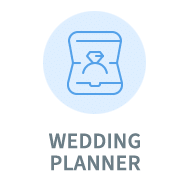Get a quote on Business Insurance
As thrilling as the entertainment and events industry is, these businesses face a number of liability risks. From unpredictable incidents during major events to injured patrons, there is no shortage of potential hazards for event planners, musicians, nightclub owners, and others in the entertainment and events industry. Having a broad spectrum of insurance coverages can ensure that your business is protected in the face of an unexpected disaster or accident.
Entertainment and Events Business Insurance Types
General liability insurance covers accidental third-party bodily injury, property damage, personal injury, or advertising injury. If you own a nightclub, lounge, banquet hall, or any event space, general liability insurance will be essential if a non-employee gets injured on your business property.
General liability insurance also covers third-party bodily injury or property damage resulting from product liability. If you sell merchandise or serve concessions at your events, you may be held liable if a customer is injured or becomes ill.
Event planners, DJs, musicians, and other entertainment professionals will likely need to travel to various venues to perform or conduct business. General liability insurance also protects your business if you unintentionally damage third-party property during the course of your work.
Examples:
- Bodily injury: A guest at your banquet hall trips on wires powering your audio system. She injures her wrist during the fall and sues your business. Your general liability insurance would cover the medical costs and legal fees associated with this bodily injury.
- Products and completed operations: Due to inadequate food storage, several guests of your nightclub complain of food poisoning after consuming a particular dish. Your general liability insurance would cover any legal fees should the guests decide to sue.
- Property damage: While location scouting for a client’s wedding, you accidentally knock over an antique vase at the venue. General liability insurance would cover the repair or replacement.
Professional liability insurance provides financial protection for any claims of perceived failures or negligence in your professional services. For instance, a client may be dissatisfied with the decisions you made as their event planner—especially if the failed event resulted in a financial loss for them. If you are a musician or performer, your client may feel that you did not honor the terms of your contract. In fact, even if you are not at fault, defending yourself against claims of perceived negligence can be costly and detrimental to your business.
Example:
- You are hired to plan a large charity gala, but due to an email typo, you give your client the wrong date for the event. By the time you catch your error, your client has already printed and distributed invitations and flyers, booked hotel accommodations for various guests, and hired talent for the incorrect date. Your client files a lawsuit against you for negligence. Your professional liability insurance would cover the legal expenses associated with this incident.
Commercial property insurance protects the value of your business property. This coverage will provide funds for repairs or replacement of business property that is damaged or destroyed by a covered peril such as fire, windstorm, hail, or theft.
If you own or operate event spaces like nightclubs, ballrooms, and banquet halls, any damage to this property can have a direct financial impact on your business. Commercial property insurance is essential in the event of an unforeseen disaster. Additionally, if your business contains a restaurant, kitchen, or smoking area on the premises, your risk of fire significantly increases.
Example:
- A fire breaks out in your nightclub. This causes significant structural damage to your building and destroys your expensive audio and lighting equipment. Your commercial property insurance would provide the funds needed to replace the damaged equipment and repair your nightclub.
Commercial auto insurance financially covers damages if you or one of your employees are at fault in a collision while driving a company vehicle. This coverage includes medical costs if the other vehicle’s occupants are injured and damages to the other vehicle. Commercial auto insurance also covers your company vehicles if they are damaged or lost due to theft, vandalism, collisions, or other covered hazards.
Event planners, entertainers, and performers all travel from venue to venue for business purposes and are exposed to potential risks on the road. For instance, when a musician goes on tour, it is essential to obtain commercial auto insurance if they plan to travel with an automobile.
Example:
- You are hired as a DJ for an event. On your way to the venue, you collide with a vehicle in your blind spot. Commercial auto insurance would cover damages to the vehicles, as well as any medical expenses of the other driver and any legal fees.
Inland marine insurance is essential if your employees travel from various locations to transport equipment and other forms of business property. This includes products, equipment, and other business property that are not tied to a fixed location and are not covered by commercial property insurance.
For instance, event planners regularly transport sound equipment, lighting, furnishings, and display scenery. Musicians and DJs transport expensive musical instruments, sound systems, and stage props. Inland marine insurance is vital to protecting this business property.
Furthermore, nightclubs and lounges may have coat check areas which place your customers’ property under your care, custody, or control. You may be held liable if that property is damaged or lost, and bailee’s customer insurance can provide coverage.
Example:
- You and your band are hired for a wedding gig. On your way to the venue, you are involved in a car accident, and the expensive speakers that you bring with you to all your events are damaged. Inland marine insurance would cover the costs to repair or replace the sound equipment.
Workers’ compensation insurance covers employees who suffer work-related illnesses or injuries during the course of their work. This coverage includes the employee’s medical expenses, rehabilitation, and a portion of lost wages. Workers’ compensation insurance is a required coverage in almost every state for businesses that have employees. Specific details (such as types of claims covered and the amount of compensation provided) vary from state to state.
Exposure to these risks may be high in the entertainment and events industry. For instance, employees of event planning businesses often set up equipment, lighting, and scenery for their events. These physically demanding tasks increase the likelihood of employee injury.
Example:
- While setting up the venue of an awards ceremony, one of your employees slips on a ladder as she tries to hang floral decorations. She fractures her ankle during the fall. Your insurer will provide funds for her medical expenses and a portion of her lost income if she is unable to work during recovery.
Liquor liability insurance covers incidents of third-party bodily injury and property damage caused by individuals who consumed alcohol sold or served by your business. This coverage is particularly important for nightclubs, lounges, and other businesses that rely heavily on alcohol sales. Your business may be held liable if intoxicated customers cause car accidents, unintentionally injure another person, start a fight, or damage someone else’s property. Liquor liability insurance can cover damages and legal expenses in the case of a lawsuit.
Example:
- A customer becomes over-intoxicated from the drinks he purchased at your nightclub. He tries to drive home, but he ends up crashing into a sign at a nearby restaurant. The restaurant sues your nightclub for property damage. Your insurer would provide funds to cover the lawsuit and any resulting settlements.
Additional Insurance Coverage
In addition to the insurance coverages listed above, there are other relevant insurance types that may be worth considering for your entertainment and events business.
- Commercial crime insurance provides financial protection for businesses from losses resulting from criminal acts. This includes forgery, robbery, burglary, theft, and employee dishonesty. If an employee is responsible for any monetary transactions, your business may be susceptible to crime.
- Business income coverage financially covers your business for loss of income and operating expenses if your business must temporarily close to recover from physical loss, damage, or destruction by a covered peril. This coverage includes the business’s net profits and normal operating expenses such as rent, employee salaries, and taxes. This coverage is essential for businesses that operate event spaces, like nightclubs, ballrooms, wedding venues, and banquet halls.
- Equipment breakdown insurance covers the repair or replacement of malfunctioned or damaged equipment. Exposure to these risks may be high if your business serves food and requires refrigeration equipment. Breakdown and loss of your business equipment—such as electrical control panels and lighting and sound equipment—can result in a significant loss if the equipment is not properly insured. Equipment breakdown insurance can be added to your commercial property insurance policy as an endorsement or purchased as a standalone policy.
Insurance Coverage for Your Employees
If you’re an employer of an entertainment and events business, your company has the option of providing group insurance plans for all your employees. Here are some of the options available:
- Group health insurance provides coverage when your employees encounter medical and health care-related costs. Health insurance can cover everything from visits to a primary care physician all the way to hospitalizations.
- Group life insurance distributes financial compensation to an employee’s near relatives in the event of an unexpected passing, whether work-related or not. Life insurance is available to individuals, but group policies generally offer better rates.
- Group disability insurance provides income to employees who cannot work as a result of non-work-related injuries.
What entertainment and events businesses need insurance?
Business insurance coverage is essential for all entertainment and events businesses as it can protect you against financial loss in unexpected circumstances. If you work with clients, have patrons visit your business property, drive a vehicle for work purposes, hire employees, own valuable business property, or provide services, it is critical to consider purchasing business insurance.
Some common entertainment and events businesses and professions that need insurance include:
Choosing an Insurance Company
The first step in acquiring insurance for your entertainment and events business is finding the right insurance company to partner with. Below, we’ve highlighted a few of our trusted insurance partners, who offer a variety of coverage suitable for businesses in the entertainment or events industry. We’ve also included a few factors that are important for your business to consider when evaluating insurers.
| Provider | General Liability | Professional Liability | Business Owner's Policy |
|---|---|---|---|
| Embroker | ?? | ?? | ?? |
| CoverageSmith | ?? | ?? | ?? |
| CoverWallet | ?? | ?? | ?? |
| Hiscox | ?? | ?? | ?? |
| Thimble | ?? | ?? | ?? |
Financial strength. While you may think getting the best-priced policy should be your main goal, it is more important to ensure you purchase insurance from a financially stable provider. It’s worth remembering that insurance claims are paid directly from the finances available to the insurance company. In other words, if the insurance provider is financially stable, they will be able to fulfill their claims commitment. When an insurance company does not have financial stability, it may collapse and be unable to support you.
While this is rare, it does happen. You want to know your company is always secure and certainly don’t want the surprise of finding out your insurance provider cannot cover your losses when you make a claim.
Of course, this leads to the obvious question: How do you know your insurance company has financial strength? Unfortunately, it is not as simple as just purchasing a policy from the biggest industry names because even giant insurers go through periods of financial instability. Luckily, there are rating agencies that grade insurance companies in terms of their financial strength. Some of the major rating agencies are Fitch, Standard & Poor’s, AM Best, and Moody’s.
Price. Cost is important for any business, but the price of insurance is not the only factor. Instead, your business will be better served by looking for the policy that is the most affordable but also meets all your requirements.
Different insurers have different methods for determining the premium you will pay, although there are some industry standards. For insurance companies, pricing is all about determining how much risk your business presents. The key to finding the best deal that meets your company needs is to shop around. Speak to insurers, use online quote engines, and work with brokers to ensure you get the coverage you require to protect your business.
Customer service. While you want your insurance provider to be financially stable and priced competitively, it is also important that you can engage with the company. It is possible you will need to make a claim, change policy details, or update personal information. In these cases, you want to deal with a company that has good customer care. While most major carriers have good customer service records, some spend more time and effort on ensuring their customers are taken care of. This may seem unimportant, but dealing with welcoming, qualified, and thoughtful professionals will be vital during a claims process.
Final Word
While it is impossible to foresee disasters and accidents, obtaining adequate business insurance is a necessary step to protecting your business when the unexpected happens. It is essential to take your time when considering the various risk exposures of your entertainment and events business to ensure there are no gaps in your coverage.








